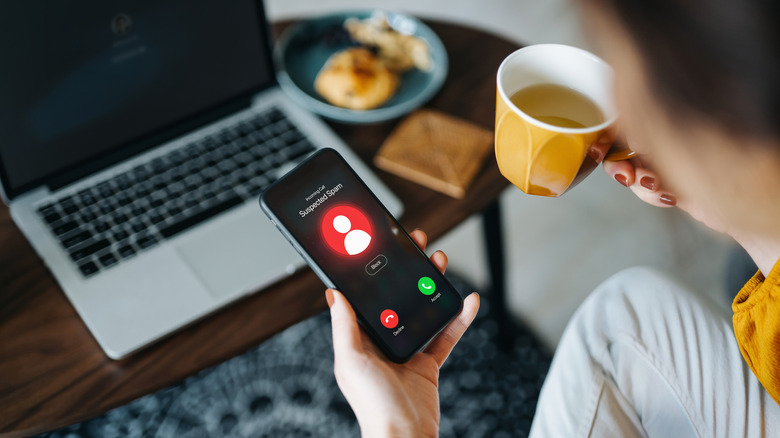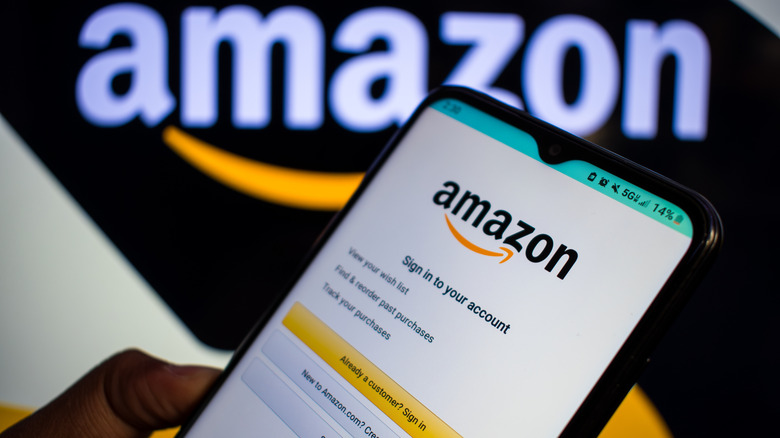What Happens If You Press 1 On An Amazon Scam Call?
Scam calls are a daily part of life that we could all happily live without. The majority of consumers are well-educated about scammers by now. While there are ways to block spam likely calls, fraudsters continue to think of new ploys to deceive people. Similarly to suspicious messages from seemingly helpful tech support sources, the Federal Trade Commission (FTC) has issued warnings of calls using the name of a well-known company — Amazon.
The call presents a recorded message claiming it's from the retail giant stating that there's a problem with your account. It will prompt you to press the number one to speak to a representative. Amazon does not publicly release its user data, but it's one of the most visited websites in the U.S., with an estimated 255 million members. That's millions of consumers that are vulnerable to scam calls — so what happens if you're one of them?
Scam calls are always after one thing: your personal information, especially banking and credit card numbers. The fraudster on the other end of the line will spin a story to trick you into revealing this data. The caller might say there's a problem with an order or your account or that someone has made a fraudulent purchase. They will create a sense of urgency, hoping to make you panic. To "solve" the non-existent problem, the scammer may ask for your account log-in information or credit card number. To protect yourself, never press one or continue with the call, and contact the company directly to inquire about any problems.
The best way to respond to scam calls claiming to be Amazon
What feels like an endless wave of scam calls can be frustrating, and it may be tempting to press that little one key, just to give the conman a piece of your mind. It's best to avoid that temptation, however, because even pressing that single button helps the scammer. It confirms that your phone number is indeed active and that you're willing to pick up the phone, which could provoke more calls.
If you're truly curious about what happens when you press one, the Better Business Bureau of Wisconsin gave it a go, with rather amusing results. Julie kept the scammer on the line for more than half an hour, wasting their time in a pleasant plot twist.
If you press one without thinking, immediately hang up and check your Amazon account through the official website or app. You should also report the scam to the FTC. If you think your Amazon account has been hacked, immediately change your password and turn on two-step verification if it's not already active. Take a close look at your account to be sure your address, phone number, email, and payment methods are secure, and check for unauthorized purchases. Ultimately, the best way to respond to any scam call is to hang up without providing any information and report the call.

